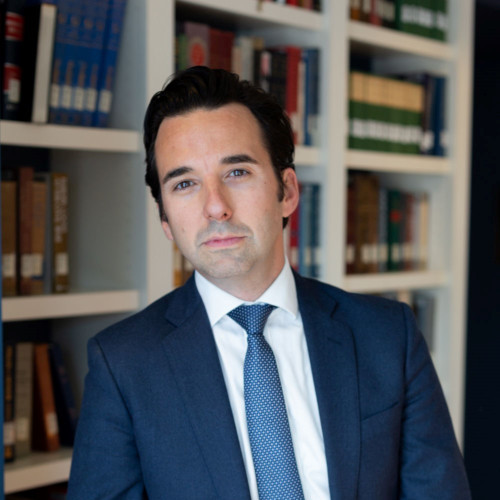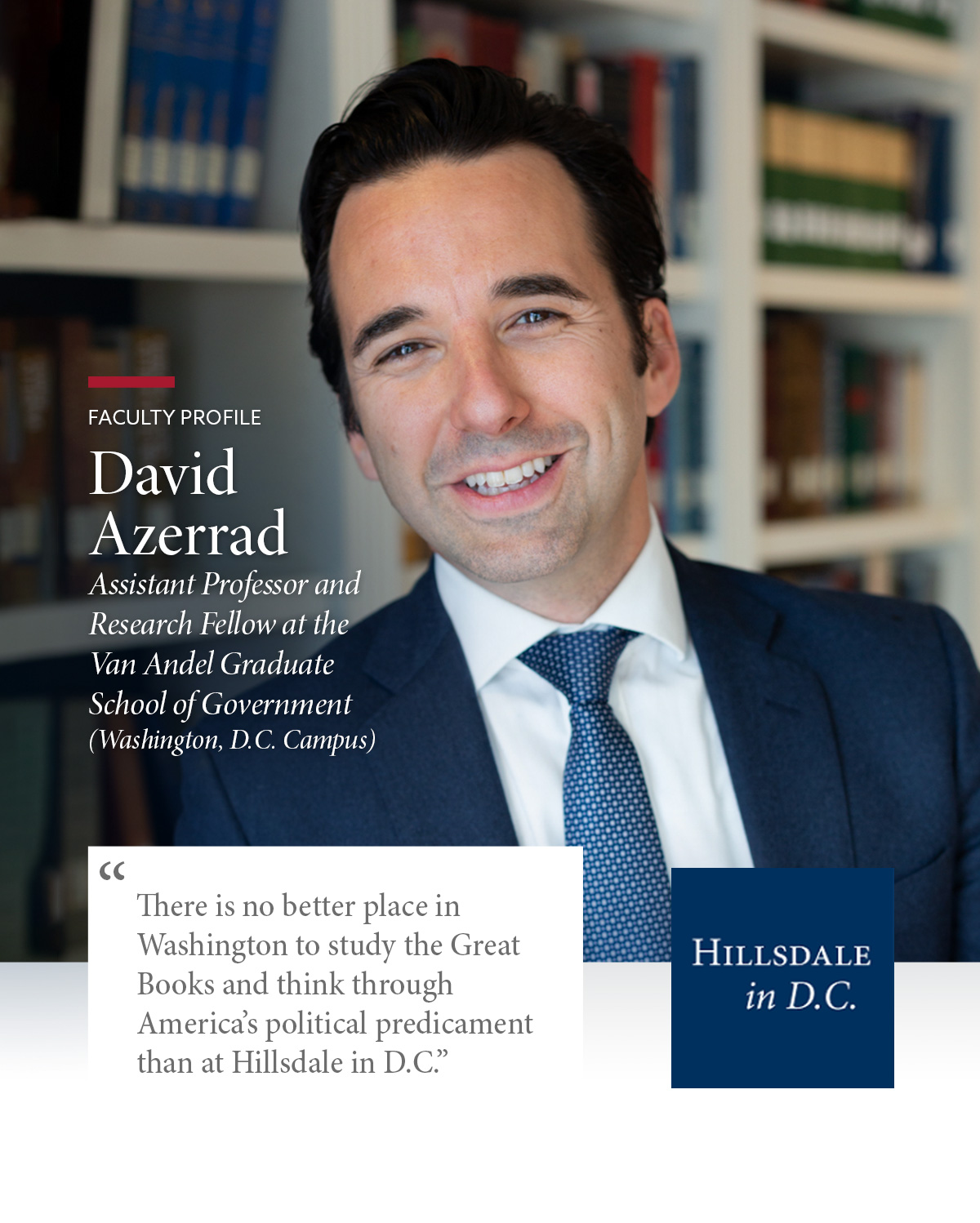
 David Azerrad teaches classes in political theory and government at Hillsdale In DC. His research and writing focus on classical liberalism, modern liberalism, conservative political thought, and identity politics. He teaches an undergraduate class on “Contemporary American Political Thought” and graduate classes on “Progressive and Liberal Political Thought,” “American Conservative Political Thought,” and “Tocqueville.”
David Azerrad teaches classes in political theory and government at Hillsdale In DC. His research and writing focus on classical liberalism, modern liberalism, conservative political thought, and identity politics. He teaches an undergraduate class on “Contemporary American Political Thought” and graduate classes on “Progressive and Liberal Political Thought,” “American Conservative Political Thought,” and “Tocqueville.”
A popular speaker, Azerrad has given talks on many college campuses and addressed audiences in more than 30 states. His writings have appeared in various publications, including The Claremont Review of Books, National Affairs, First Things, The Times (of London), and Interpretation: A Journal of Political Philosophy. He has also appeared on national television in the US, Canada, and the UK.
Prior to joining Hillsdale College, Azerrad was the Director of the B. Kenneth Simon Center for Principles and Politics and the AWC Family Foundation Fellow at The Heritage Foundation. He has also taught at American University and the University of Dallas.
A native of Montreal, Quebec, Azerrad received his B.A. from Concordia University, his M.A. from Carleton University and his Ph.D. from the University of Dallas where he wrote a dissertation on the foundations of John Locke’s political philosophy.
Azerrad most enjoys teaching Tocqueville’s analysis of the strengths and weaknesses of democracy and using the canonical works of political philosophy to think through our current predicament. “This is a fascinating time to be studying American politics,” he explains. “And there is no better place in Washington to do so than Hillsdale: we bring the great works of politics to bear on the great questions of our time.”
Of Hillsdale College, Dr. Azerrad also said, “It is one of the very few intellectually and morally serious universities in America. Our primary mission is not rankings, football, fundraising, diversity, or social justice activism, rather it is academic excellence, the Great Books of the Western tradition, and character formation.”